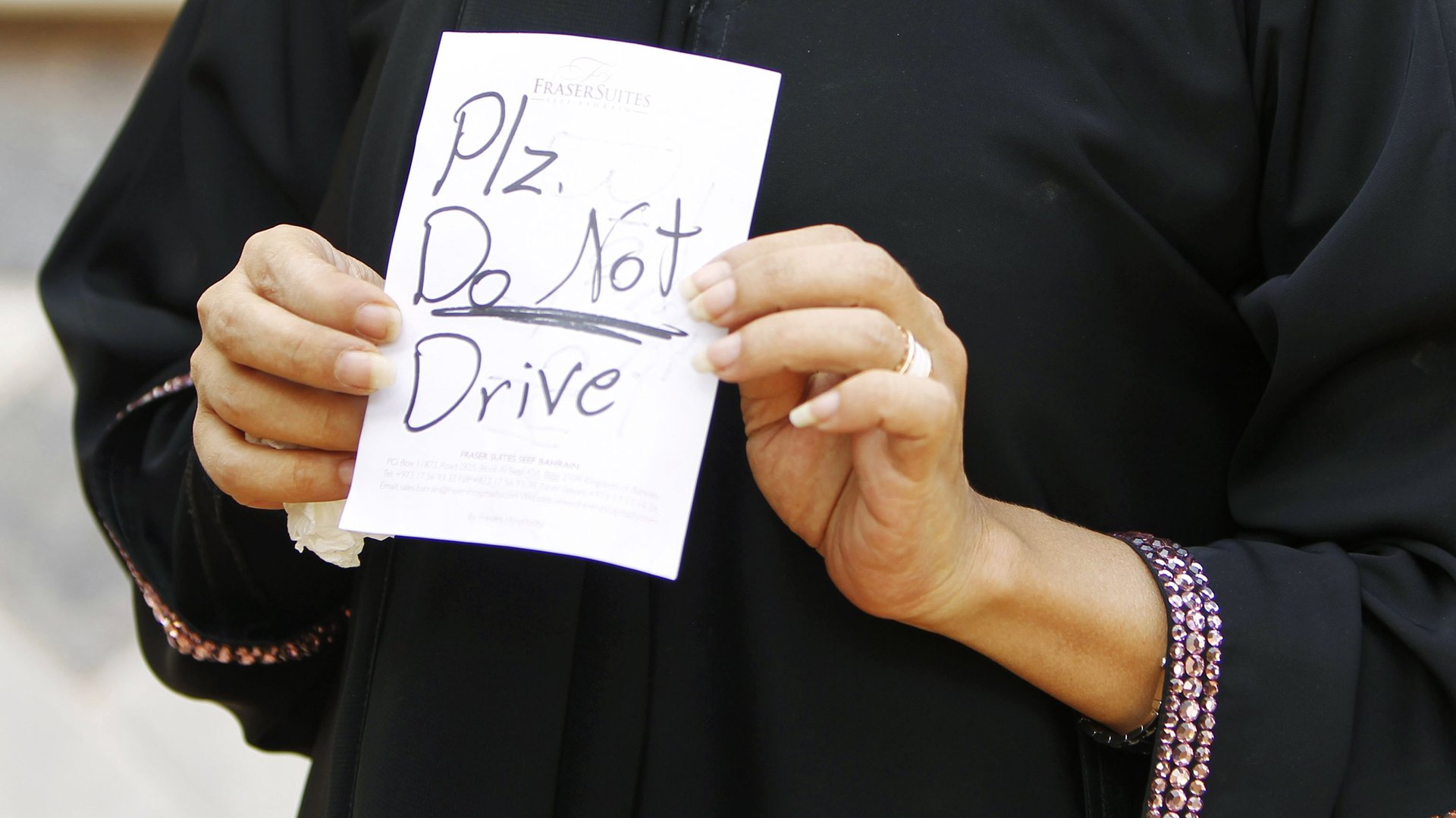Saudi Arabia’s most powerful royal reportedly thinks women should be allowed to drive
Saudi Arabia is one of the worst countries in the world to be a woman, coming in 134 out of 145 in a World Economic Forum ranking.


Saudi Arabia is one of the worst countries in the world to be a woman, coming in 134 out of 145 in a World Economic Forum ranking.
Among the many rights that women are denied in the country, one is perhaps best known, and has become symbol of them all: women are not allowed to drive. However, there is hope that this—and more—might change.
In a long profile by Bloomberg’s Peter Waldman, deputy crown prince Mohammed bin Salman, the most powerful man in Saudi Arabia (his portfolio is larger even than that of his father, king Salman), hinted at changes to come for women as part of a plan to restructure the country’s economy and modernize its culture.
“We believe women have rights in Islam that they’ve yet to obtain,” the 31-year-old prince said.
Waldman writes that a former senior US military officer told him that “Mr. Everything,” as prince Mohammed is reportedly nicknamed by foreign diplomats, would be ready to grant women the right to drive. The US officer said he heard the prince say: “If women were allowed to ride camels [in the time of the Prophet Muhammad], perhaps we should let them drive cars, the modern-day camels.”
The prince has been relatively candid regarding his position on women’s role in his country. “We look at citizens in general and women are half of this society and we want it to be a productive half,” he told Bloomberg on another occasion, stating that the country’s government is trying to address people ”who distort the facts of the religious establishment so that women don’t get their complete rights granted them by Islam.”
Saudi women were granted the right to vote, and be elected to office, for the first time ever, in a Dec. 2015 municipal election. Eighteen female representatives were elected. On Apr. 13, Saudi Arabia also moved to reduce the power of its Committee for the Promotion of Virtue and the Prevention of Vice, its “religious police” infamous for abuses. Under the new regulations, the committee won’t be allowed to arrest people, nor “restrain them, chase them, request their documents, confirm their identities, or follow them.”
Correction: An earlier version of this story did not reflect prince Mohammed’s and his father’s accurate titles.